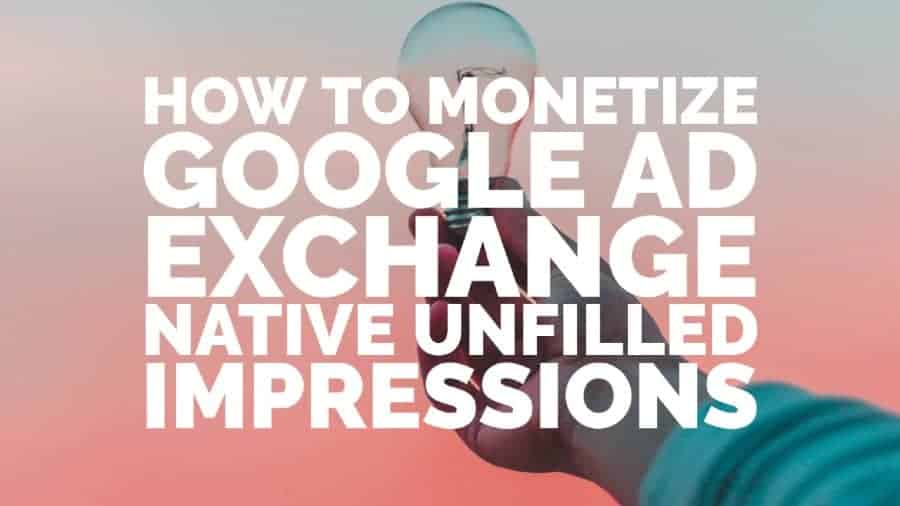Most publishers have either already started testing Native ads or have it as a part of their near future strategies.
Native ad serving technology in Google Ad Manager offers publishers an easy setup that can be created once and leveraged as a template without having to reconfigure them at the native style or creation level. Unless you want new ads to have different variables/format (fields in the creative settings) and styling, you can go ahead with the native styles (one size per style) associated with the same format. Simply change the settings in the creative such as the image file, title, headline, and advertiser, etc.
However, the same may not be true for every publisher. It might not be the best way to juice up viewability rates, but it can help to improve CPMs click through rates. The best option would be to do controlled A/B testing, with any of the following combinations and make a call based on the test results:
- Only a single native style
- Two or more native styles with varying styling (probably one as suggested by Google ) as well as position
- Single native style but from 2 different demand sources
- Different native styles from various demand sources.
- Quality testing between display and video or both via in-feed option as videos here don’t require a player to be implemented and will be served as outstream.
- Try a fluid side along with the standard sizes to gauge the performance. This should be done according to the page layout, strictly.
What to do if unfilled native requests are high
Google’s Ad Exchange (AdX) has always been the go-to source for the best rates and fills for native requests. Depending on the site/vertical, the fill rate of Google demand might be low in some instances. Here are some options publishers should explore if the unfilled count of native requests is high, even with Google demand in the current ad stack are:
#1 – Set the slot/position to use standard sizes and not only Native’s fluid size.
This is also a recommendation that Google puts out after running multiple test scenarios. If there is not much native demand, a display ad can serve instead, with the configured non-native sizes. Keep in mind that this might not be feasible in cases where a specific slot was purpose-built only to handle native formats and not regular display ads.
#2 – Test out different styling and formats
The main advantage with native ads is the control retained by the publisher, on how an ad can look. This is not a possibility with display ads, as the creatives come pre-built without any customizing options.
Build multiple native styles and set them to serve:
- On the same ad slot, to identify the best of the lot. This will be helpful to compare two different styles, keeping all other test parameters (position, ad unit, page/section, incoming traffic, etc.) uniform.
- Test the same style on different positions on a given page/section. This will help identify the best performing ad position.
#3 – Onboard ad networks or advertisers that support native demand.
Reach out to ad networks to have their native demand integrated within your ad stack. You can do that in the following ways:
- Tag-based: In this case, the styling can either be applied when trafficking the tag or the creative code in Google Ad Manager. Or your custom styling will be applied directly by the ad network.
- Header Bidding: If the ad network that you want to try out already has a prebid adapter, the custom native styling can be set on the bidders dashboard or by the ad rep directly. The supported approach might vary from bidder to bidder, but can be enabled/disabled at the individual slot level, provided the bidder has good native demand.
Tips & best practices when running native ads
#1 – For good fill and consistent performance of native styles, always adhere to the guidelines set out by Google. This playbook is an excellent reference for a quick overview for your design teams: https://f.m2.ai/sb081adc9
#2 – If feasible, don’t restrict your inventory to run Native and display ads exclusively. This can limit the available demand considerably. After running a few tests and if the rates/fill look good for native ads, in that case, running only native on specific positions would make sense.
#3 – Compared to native ads
- Regular display ads would have a higher chance of conversion as they stand out from the page content.
- As the main premise of native ads is to blend in with the page content/styling, compared to display ads, native ads have a higher chance of user interaction, but that might not have a high probability of converting.
- In case of potential direct deals, based on the requirement of the advertiser, customize the styling/positioning of the native ad. If advertisers are comparing the conversion rate of native ads with that of display ads, they are bound to see a drop in most of the cases.
Conclusion
Are you struggling with high levels of unfilled ad impressions? MonetizeMore can help! Our team of ad ops specialists can help optimize your native ads and reduce unfilled impressions. We’ll take care of all the hard work so that you can focus on your business! Are you ready to maximize your ad revenue? Sign up today!
Kean Graham is the CEO and founder of MonetizeMore & a pioneer in the Adtech Industry. He is the resident expert in Ad Optimization, covering areas like Adsense Optimization,GAM Management, and third-party ad network partnerships. Kean believes in the supremacy of direct publisher deals and holistic optimization as keys to effective and consistent ad revenue increases.
